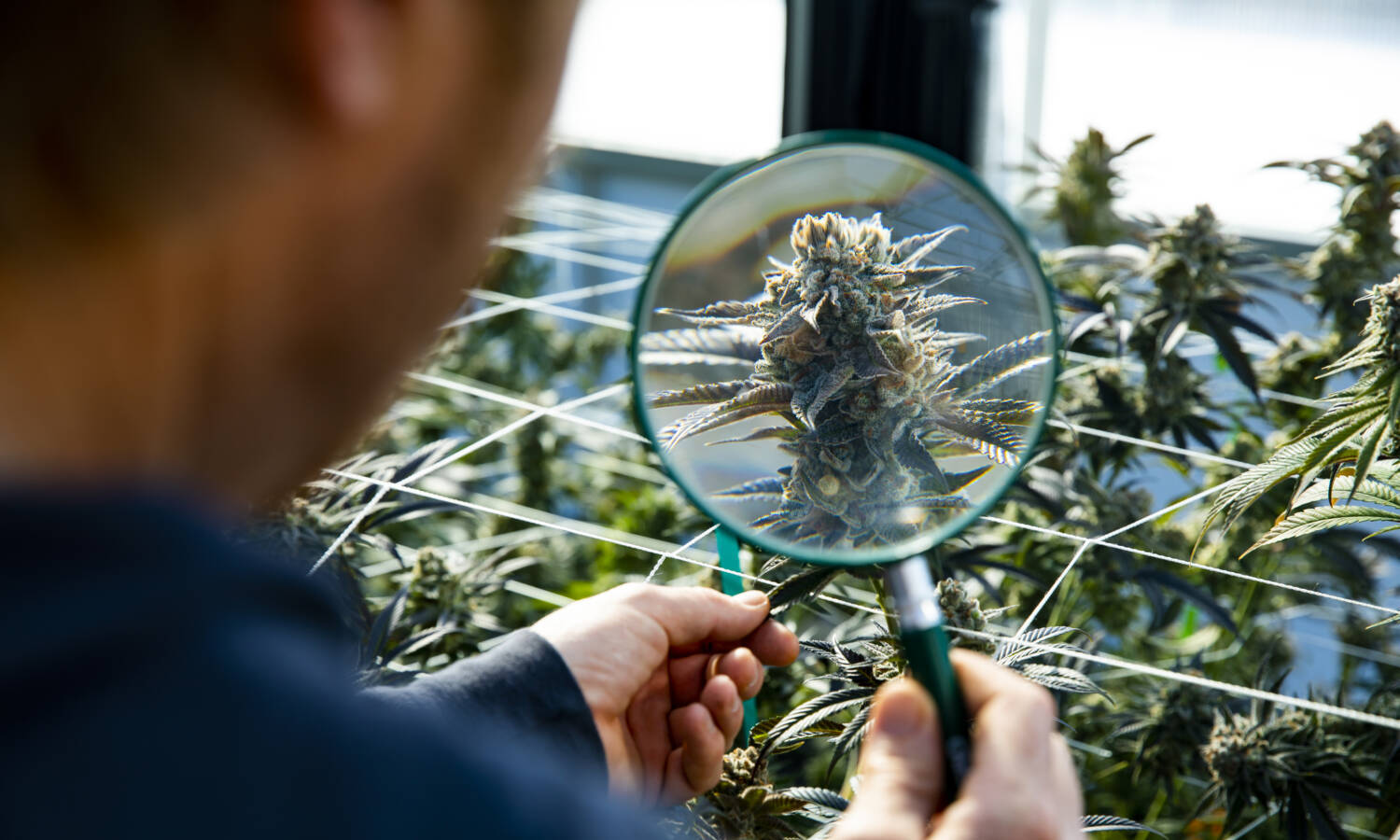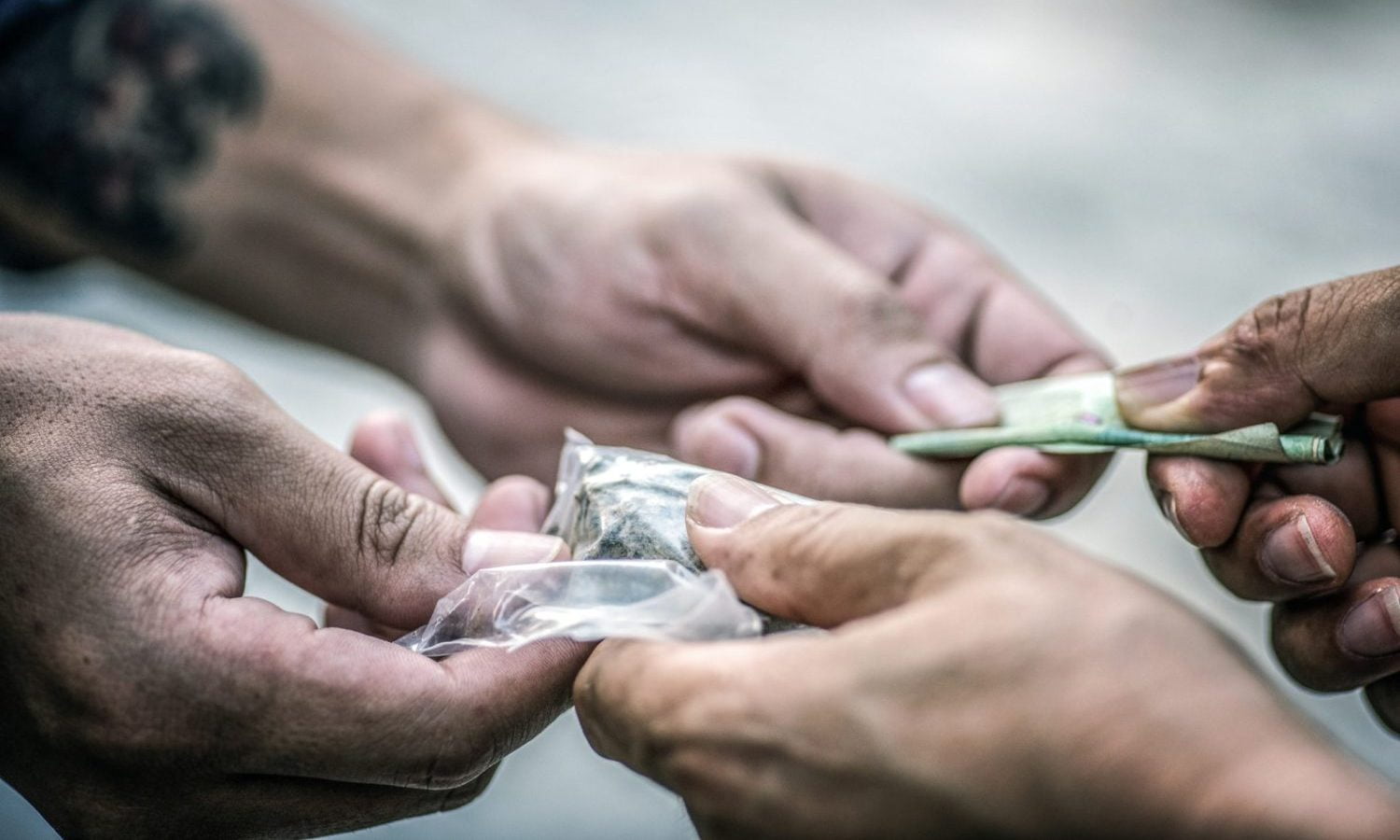
The downside to declassifying cannabis as a Schedule 1 drug
This article originally appeared on Cannabis.net and has been republished with permission.
Cannabis drugs are illegal at the federal level and are classified as Schedule 1 drugs in the United States. For a country where 35 out of 50 states have decriminalized or legalized the use of cannabis for medicinal purposes, this federal policy seems absurd.
Schedule 1 drugs are considered the most addictive drugs and provide no therapeutic benefit to users. Drugs in this group include marijuana, psychedelics, and heroin. The illogicality of having cannabis on this list is that many studies have shown the drug to have immense medicinal value. Patients suffering from chronic pain, cancer symptoms, muscle spasms, and inflammation have shown improvements when given cannabis-derived medications.
Photo by Olena Ruban/Getty Images
On the other hand, Schedule 2 is reserved for drugs that are considered less addictive and of little medicinal value. This is where the absurdity comes together. Cocaine is listed here. This implies that the Drug Enforcement Administration believes that cocaine is less addictive and less dangerous than cannabis. Although cocaine is a well-known, dangerous drug that has been abused by millions of people in different regions of the world,
Rescheduling cannabis from Schedule 1
The Controlled Substances Act was first passed in 1971. During this time, cannabis was largely banned in most countries around the world and there was misunderstanding about it. Cannabis advocates tried their best to get governments to make sense of the label, but they couldn’t.
Fast forward to today, countries like Canada, Germany, and Spain have legalized cannabis for medicinal purposes. At the same time, the United States government decides to stick with its old CSA. The recent wave of support for cannabis in the House of Representatives and Congress has led people to look for other means to change the direction of federal cannabis legislation.
In 2018, the federal government authorized the cultivation, possession, and use of hemp through the Farm Bill. However, this has more or less thrown many stakeholders into a state of confusion as to how CBD can be used. The federal government’s attempt to differentiate between cannabis and hemp has not been as successful as it had envisioned. Experts even revealed that the bill created a gray area for delta-8 THC and some intoxicating cannabinoids.
Cannabis industry observers and advocates suggest that moving cannabis from Schedule 1 to a lower schedule would be the best bet.
Why reschedule?
Congressional efforts to decriminalize cannabis have been unsuccessful. Although legislation would have been the best way to legalize cannabis, debt restructuring isn’t a bad option. Congress will make cannabis permanent and decriminalize it. However, with a debt restructuring, the drug remains a controlled substance.
The current political atmosphere suggests lawmakers may not be able to decriminalize the drug any time soon, as the presidency issues guidelines that don’t show federal legalization of cannabis is in the works.
TIED TOGETHER: Can the Biden administration postpone cannabis?
Some cannabis executives believe it would be best to delay the drug while Congress continues to try other strategies. Moving cannabis to lower levels would make the drug more available for research. For legal states, this would increase the number of opportunities for resident pharmaceutical companies and marijuana companies.
The executive director of the US Cannabis Council in Washington, DC, Steve Hawkins, said that delaying the talks could divert attention from better cannabis reforms. He says Congress currently has few options to approve progressive cannabis policies.
 Photo by Jordan Siemens/Getty Images
Photo by Jordan Siemens/Getty Images
The benefits of rescheduling cannabis
Shifting cannabis drugs from Schedule 1 to Schedule 2 or lower would have a positive impact on the national cannabis industry.
First, the rescheduling will create more research opportunities for scientists and institutions. This would be the most positive impact of a debt restructuring. Pharmaceutical companies and institutions will find it easier to apply for licenses to study cannabis and its compounds. The federal requirements for this would also be reduced.
RELATED: How the cannabis industry can solve the barrier problem of Schedule I drug discovery
dr Steven Groff, Founder and Co-Chairman of Groff North America, said a move to Schedule 2 would serve as a short-term solution. However, researchers would face fewer restrictions when applying for a permit to conduct research related to cannabis.
MedPharm CEO Albert Gutierrez noted that more companies are being encouraged to apply for a Schedule 2 permit to conduct experiments with cannabis-derived products. MedPharm is one of the Colorado-based companies with DEA permits to conduct cannabis research.
Currently, only large corporations can afford to fund cannabis research. This limits the amount of information that is discovered about the drug. With the proposed paradigm, multi-state operators would also consider researching their most preferred formulations to seek ways to make the products fit for human consumption.
Rescheduling cannabis would reduce the stigma associated with using the drug. Doctors would finally have the freedom to discuss cannabis treatments with patients before they reach the dying stage. These doctors will feel less scared knowing their DEA registry is not at risk.
Disadvantages of rescheduling cannabis
It would be wrong to acknowledge the pros without considering the potential downsides of cannabis rescheduling.
Most importantly, moving cannabis to the immediately lower tier would not remove Section 280E of the National Tax Code. Except that the drug will be moved to Schedule 3 or 4, which is pretty unlikely.
 Photo by athima tongloom/Getty Images
Photo by athima tongloom/Getty Images
Columbia Care MSO Vice President Adam Goers said that removing cannabis from Schedule 1 would not resolve the massive discrepancy between state and federal cannabis laws. For this to work, the federal government must first acknowledge progress in legal cannabis states before deciding to downgrade cannabis.
Any mistake made when rescheduling cannabis could open the door for the black market to thrive. Goers pointed out that no one wants a repeat of the ambiguous 2018 Farm Bill.
Conclusion
It is important that the debt restructuring is done in a way that strengthens, not undermines, existing government markets.
Many cannabis skeptics believe that a change to the CSA drug list will precede the legalization of cannabis markets by legislatures. Regarding international drug treaties, the US has already taken a position in support of medicinal cannabis in 2020. Therefore, the country can remove the drug from the category of the most dangerous and addictive drugs. The likelihood that the US government will move cannabis to levels below Schedule 2 remains very slim.
This article originally appeared on Cannabis.net and has been republished with permission.

Post a comment: